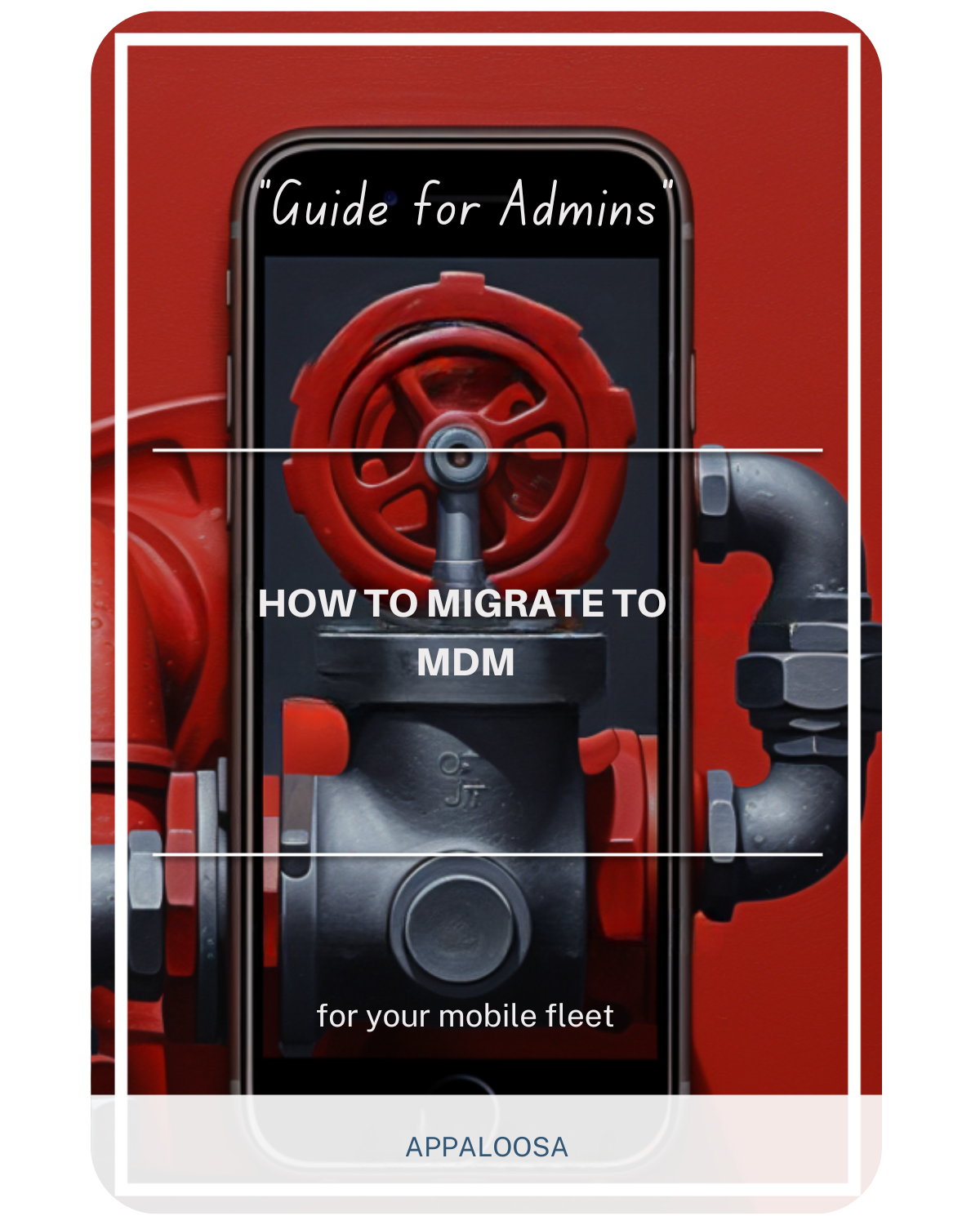Understanding MDM Cloud

In an era where remote work and mobile productivity define business success, cloud based MDM has emerged as the cornerstone of modern device management strategies.
As organizations seek to protect sensitive data while enabling workforce mobility, understanding cloud MDM solutions becomes crucial for maintaining competitive advantage and operational security.
Understanding Cloud-Based Mobile Device Management
What is Cloud MDM?
Cloud based device management represents a revolutionary approach to managing mobile devices without requiring on-premises infrastructure.
Unlike traditional MDM solutions that demand significant hardware investments and IT resources, cloud MDM operates entirely through web-based platforms, offering unprecedented flexibility and scalability.
At its core, a cloud master data management system virtualizes the management agents in the cloud rather than running them directly on devices.
This innovative approach saves battery life and device performance while providing comprehensive control over mobile device management MDM functions.
The MDM platform handles all security certificates and connection management, eliminating the administrative burden of certificate renewals and compliance updates.
The Evolution from Traditional to Cloud MDM
The transition from on-premises to cloud based master data management reflects broader digital transformation trends.
Traditional MDM required substantial investments in servers, networking equipment, and dedicated IT staff. Cloud MDM solutions eliminate these barriers, making enterprise-grade device management accessible to organizations of all sizes.
This evolution has democratized access to sophisticated mobile device management software, enabling even small businesses to implement robust security measures previously available only to large enterprises.
The shift represents not just a technological upgrade but a fundamental reimagining of how organizations approach device management.
Core Components of Cloud MDM Solutions
Device Enrollment and Management
Modern cloud based MDM platforms streamline the enrollment process for various operating systems, including Android, iOS, Windows, and macOS.
The managing device process begins with simple enrollment procedures that can be completed in minutes, whether through email invitations, QR codes, or integration with existing identity management systems.
The MDM platform maintains continuous communication with enrolled devices, ensuring policies remain current and corporate data stays protected. Devices must connect periodically—typically every 120 days—to maintain their management status and receive updates, a requirement that balances security with user convenience.
Security and Compliance Features
Cloud MDM solutions excel at implementing comprehensive security measures across diverse device fleets. Data encryption forms the foundation of these security protocols, ensuring that enterprise data remains protected both in transit and at rest.
The ability to ensure compliance with regulatory requirements becomes particularly crucial for organizations operating in regulated industries.
When devices are lost or stolen, cloud MDM provides immediate response capabilities through remote lock and wipe functions.
These MDM tools can instantly remove corporate data from compromised devices, preventing unauthorized access to sensitive information while preserving personal data in BYOD scenarios.
Master Data Management Integration
Master data management cloud solutions extend beyond simple device control to encompass comprehensive data governance strategies. By integrating device management with broader master data assets, organizations create unified approaches to information security that span all digital touchpoints.
A robust master data management solution ensures consistency across all data sources while maintaining the flexibility required for modern business operations. This integration becomes particularly valuable when managing diverse device ecosystems that access critical business information.
Benefits of Cloud-Based MDM

Operational Advantages
Cloud based device management delivers significant operational benefits that transform IT management. The elimination of on-premises infrastructure reduces capital expenditures while shifting to predictable operational costs. IT teams can focus on strategic initiatives rather than maintaining servers and managing updates.
The scalability of cloud MDM solutions allows organizations to adapt quickly to changing needs. Whether adding ten devices or ten thousand, the platform scales seamlessly without requiring additional hardware investments or complex configuration changes.
Enhanced Security Posture
Modern cloud master data management platforms provide security capabilities that surpass traditional on-premises solutions.
Continuous updates ensure protection against emerging threats, while centralized management secures mobile devices across the entire organization from a single console.
Wi fi security management becomes particularly important as employees connect from various locations. Cloud MDM can enforce VPN usage, validate network security, and prevent connections to unsecured networks, protecting enterprise data regardless of user location.
Cost Efficiency
The financial advantages of cloud based master data management extend beyond infrastructure savings. Reduced IT staffing requirements, minimized downtime, and improved productivity contribute to substantial ROI.
Organizations typically see cost reductions of 30-50% compared to traditional on-premises MDM deployments.
The pay-as-you-grow model of MDM cloud ensures organizations only pay for the devices they actively manage, eliminating waste and improving budget predictability. This flexibility proves particularly valuable for seasonal businesses or those experiencing rapid growth.
Master data management MDM in the cloud offers financial advantages that traditional deployments cannot match.
Implementation Strategies
Planning Your Cloud MDM Deployment
Successful cloud based MDM implementation begins with comprehensive planning. Organizations must assess their current device inventory, identify security requirements, and establish clear policies before deployment. This preparation ensures smooth rollout and user adoption.
Understanding the various operating systems in use across the organization helps select appropriate MDM tools and features.
Whether managing a homogeneous iOS environment or a diverse mix of platforms, the chosen solution must provide consistent management capabilities across all device types.
Integration with Existing Infrastructure
Modern cloud MDM solutions integrate seamlessly with existing IT infrastructure. Whether connecting to Microsoft Entra ID, VMware Workspace ONE, or Apple Business Manager, these integrations streamline enrollment and enhance management capabilities.
The MDM platform should complement rather than complicate existing workflows. By leveraging single sign-on, automated provisioning, and directory synchronization, organizations create cohesive management environments that reduce administrative overhead while improving security.
Data Governance Considerations
Implementing effective data governance within cloud MDM requires careful attention to data residency, privacy regulations, and access controls. Organizations must understand where their data resides, how it's protected, and who can access it.
Master data management cloud solutions must comply with regional regulations like GDPR, HIPAA, or CCPA. The chosen platform should provide detailed audit trails, data processing agreements, and clear policies regarding data handling and retention.
Advanced Features and Capabilities
Intelligent Threat Detection
Modern cloud based device management incorporates AI-driven threat detection that identifies and responds to security incidents in real-time. These systems analyze device behavior patterns, detecting anomalies that might indicate compromise or policy violations.
The ability to protect sensitive data through predictive analytics represents a significant advancement over reactive security measures. By identifying potential threats before they materialize, organizations can prevent breaches rather than simply responding to them.
Automated Compliance Management
Cloud MDM solutions streamline compliance through automated policy enforcement and reporting. The platform continuously monitors devices to ensure compliance with organizational policies and regulatory requirements, generating detailed reports for audit purposes.
Data encryption policies can be automatically enforced across all managed devices, with non-compliant devices restricted from accessing corporate resources until they meet security requirements. This automation reduces the burden on IT teams while improving overall security posture.
Application and Content Management
Beyond basic device management, cloud MDM provides sophisticated application and content distribution capabilities. Organizations can create curated app stores, push required applications silently, and manage licenses efficiently across their device fleet.
The mobile device management software ensures that employees have access to necessary tools while preventing the installation of unauthorized or potentially harmful applications. This balance between productivity and security proves essential for modern organizations.
Choosing the Right Cloud MDM Solution
Evaluation Criteria
Selecting appropriate cloud based MDM requires careful evaluation of multiple factors. Platform stability, security certifications, integration capabilities, and vendor reputation all play crucial roles in the decision process. Organizations should prioritize solutions that align with their specific needs and growth plans.
The chosen master data management solution should offer comprehensive support for all operating systems used within the organization. Cross-platform consistency ensures uniform security policies and management capabilities regardless of device type.
Security and Compliance Features
When evaluating cloud MDM solutions, security capabilities should receive primary consideration. Look for platforms that offer comprehensive data encryption, secure communication protocols, and robust authentication mechanisms. The ability to secures mobile devices against evolving threats requires continuous updates and proactive security measures.
Compliance capabilities must align with industry-specific requirements. Whether operating in healthcare, finance, or government sectors, the chosen platform must provide features necessary to ensure compliance with applicable regulations.
Scalability and Future-Proofing
The selected cloud based master data management platform must scale with organizational growth. Consider not just current needs but anticipated future requirements, including support for emerging device types and evolving security challenges.
Future-proofing also involves selecting vendors committed to continuous innovation. As new operating systems emerge and security threats evolve, your MDM solution must adapt accordingly to maintain effectiveness.
Best Practices for Cloud MDM Success
Policy Development
Comprehensive policies form the foundation of successful cloud MDM implementation. These policies must address device ownership, acceptable use, security requirements, and privacy protections.
Clear communication ensures user understanding and compliance. Well-designed policies maximize the value of MDM on cloud deployments while ensuring master data management MDM aligns with organizational objectives.
Regular policy reviews ensure continued relevance as technology and business needs evolve. Involving stakeholders from IT, security, legal, and business units creates policies that balance security with productivity.
User Training and Adoption
Successful cloud based device management requires user buy-in and proper training.
Employees must understand both the benefits of MDM and their responsibilities in maintaining device security. Regular training sessions and clear documentation support adoption and compliance.
Creating user-friendly enrollment processes and providing ongoing support reduces friction and encourages participation. When users understand how MDM protects both corporate and personal data, resistance typically diminishes.
Effective master data management MDM programs prioritize user experience alongside security requirements.
Continuous Monitoring and Optimization
Cloud MDM solutions provide extensive analytics and reporting capabilities that enable continuous improvement. Regular monitoring of key metrics like enrollment rates, compliance levels, and security incidents helps identify areas for optimization.
Using these insights to refine policies, adjust configurations, and improve processes ensures that your MDM program remains effective and aligned with business objectives.
This iterative approach maximizes the value of your investment while maintaining robust security.
Future Trends in Cloud MDM
AI and Machine Learning Integration
The future of cloud master data management lies in intelligent automation powered by AI and machine learning.
These technologies will enable predictive maintenance, automated threat response, and personalized user experiences that enhance both security and productivity.
As MDM tools become more sophisticated, they will provide increasingly nuanced management capabilities that adapt to individual user behaviors and organizational patterns.
This evolution will make device management more effective while reducing administrative overhead.
Zero Trust Architecture
Cloud based MDM increasingly embraces zero trust principles, treating every device and connection as potentially compromised until verified. This approach provides superior protection for enterprise data in an era of sophisticated cyber threats.
Zero trust integration will become standard in mobile device management MDM platforms, providing continuous verification of device health, user identity, and access context before granting resource access.
Conclusion
Cloud based MDM has evolved from an IT convenience to a business imperative. As organizations navigate the complexities of modern device management, cloud MDM provides the flexibility, security, and scalability necessary for success.
By implementing comprehensive cloud MDM solutions, businesses can confidently embrace mobility while maintaining robust protection for their master data assets.
The key to success lies in selecting the right platform, developing clear policies, and maintaining ongoing optimization.
As the workplace continues to evolve, organizations that master cloud-based device management will be best positioned to capitalize on emerging opportunities while protecting their critical corporate data.
Whether you're managing a handful of devices or thousands, cloud based device management provides the tools necessary to maintain security, ensure compliance, and enable productivity in today's mobile-first world. The investment in cloud MDM represents not just protection against current threats but preparation for the future of work.
